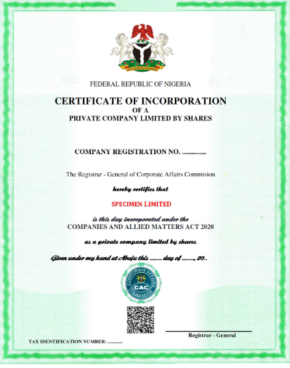One-person company (OPC) and sole proprietorship seem nearly identical, but specific distinctions are given below. If you are initiating the business and eager to have complete control over it, you will have two options to select a one-person company (OPC) and a sole proprietorship.
As you would expect, they both have their pros and cons, and you cannot say that one is better than the other without even a slight difference. The crisp answer is that the One Person Company registration is better for mid-sized businesses, while sole proprietorship registration is better for small businesses. Now, let’s examine the distinctions betwixt the two to check out which one suits your business more.
Which one to choose between a Sole Proprietorship and One-Person Company?
Until a few years ago, a sole proprietorship was the only option for a person who wants to start a business by themselves. Now you have an alternative option: a one-person company.
The concept of one person company (OPC) allows a single person to run a company limited by shares. A sole proprietorship is an entity that is run and owned by one individual where there is no distinction between the owner and the business.
Check out the difference between OPC and Sole Proprietorship given below and decide!
Sole Proprietorship
The simplest form of business is carried on by individuals who are personally liable for debts. A sole proprietorship is not a legal entity like a partnership or a company.
Therefore, A sole proprietor can start a business under his name or under a fictitious name. Costs are nominal to start this kind of business, however, the disadvantage lies in the financial failure situation. If the business fails to earn a profit then creditors can file a lawsuit against the sole proprietor.
Business liability can be discharged against his personal assets. However, if the owner dies, there are few chances of survival. Expansion of business after a point becomes a tough job. The advantage is this kind of entrepreneur need not enter into board meetings and annual meetings. Returns are signed under their name. They have flexible working hours.
Advantages of Sole Proprietorships
- Easy to set up. No long registration process.
- Takes lesser investment
- Compliances are less compared to OPC (least among all other forms of business)
- Tax is lesser as long as the income is lesser than the income tax slab for individuals
- Financial statements and audit reports are not public, while an OPC you have to submit these details as an OPC
- No mandatory audit is required for a sole proprietorship if the type of business doesn’t warrant it.
- No mandatory General meetings.
Disadvantages of Sole Proprietorships
- While the sole owner enjoys all the profits, they also have to bear all the loses
- Comparatively hard to get funding or loan as banks and any other lenders are hesitant to invest in this type of business
- As the income grows, one might have to pay higher taxes according to the tax slab while OPC is taxed differently
So, a sole proprietorship is best for small businesses that aren’t looking to incur debt or get funding. If you are not planning to scale your business up a lot, this could still be a good choice for you to start a business. You can later register your business as an OPC.
One-Person Company
One Person Company is a fusion of a Sole-Proprietorship and Company form of business. The CAMA 2020 brought in the new concept of One Person Company, thereby enabling a Person who is carrying on the business in a Sole-Proprietorship firm to enter into a corporate outline with concessional/relaxed requirements under the Act.
Previously, a minimum of two directors and shareholders were required to form a private limited company. However, with the new Act, a company can be formed with just 1 Director and 1 member. OPC Company is a form of a company where the compliance requirements are lesser than that of a private company.
The concept brought in extravagant prospects for sole proprietors and individual entrepreneurs who can take the advantage of Limited liability and corporations.
Advantages of OPC
- Limited liability for the business owner
- It is a separate legal entity
- The company registration gives more credibility to the business
- Easy to get loans or funding for the business as lenders trust the registered business
- Perpetual succession
- In case the owner becomes incapable to run the business or dies, the nominee can take over the business
- A sustainable business structure even when you want to scale
Disadvantages of OPC
- OPC takes more money to set up and run compared to a Sole Proprietorship
- More compliances
- Must have a nominee to incorporate an OPC
- A person cannot have more than 1 OPC at a time
The OPC is best for people who want to start a business with a corporate structure but still want to retain effective control over all the business operations. You can scale the company and still enjoy limited liability.
If you are still not sure which one to pick for your business, feel free to reach out to us and our experts will guide you in making the right decision.
SplashDict is equipped with accredited experts and the necessary resources to assist you to complete the One-Person Company Incorporation in Nigeria.
One-Person Company Incorporation
- Delivery of Certificate Of Company incorporation.
- Drafting and digital delivery of approved Memorandum of Association and Articles of Association (MEMART).
- Delivery of Status Report.
- Delivery of Certified True Copy of Application Form.
- FIRS' Tax Identification Number Inclusive.
- 3 to 14 Business Days Delivery.














